Reid Matthias - College Pastor
 A quote has been attributed to Socrates which reads, ‘The unexamined life is not worth living.’ While its depth cannot be ignored, in this journal article I’d like to push even further.
A quote has been attributed to Socrates which reads, ‘The unexamined life is not worth living.’ While its depth cannot be ignored, in this journal article I’d like to push even further.
The unspoken tales of an unexamined life is a waste of a life not lived to its full potential.
My question for us educators is: What, if any, is the importance of using intentional language to relate our experiential life together?
My contention for this question is that it is only in the retelling of our experiences that we find true connection, meaning and purpose, and a strengthened bridge to contentment.
Not long ago, I had the opportunity to take part in the AFL gala day. While I love Aussie Rules, my desire to coach was based more on the excitement of the year 7/8 boys on the team. As we trained for the day, their exuberance, zestful joy of competition, and camaraderie (along with a healthy dose of non-focus) was immediately apparent, and I couldn’t help being drawn into the opportunity.
The day of the gala dawned gorgeously. In the morning, low clouds hung on the northern horizon while the sun threatened to make an appearance later in the morning. My boys (notice how I’d already claimed them as my own) had to wait two hours in restless anticipation (and when I say ‘restless’, it was literally like trying to manage molecules in a superheated environment) before their first game.
They were raw and undisciplined. AFL is a game of coordination and spacing. They had neither of those, but what they had was joy, and I was absorbed into it, clapping and shouting madly while simultaneously learning the names of these twenty young students. When the game finished, and somehow we were victorious, the boys beamed as they looked up at me for some kind of emotional coach’s speech.
I was about to say something when one of the boys with grass in his hair and mud smeared across a cheek asked, ‘Did we win?’
In that moment, I felt the awe of epiphany. For them, winning was not always coming out on top, but having grass in your hair and mud on your cheek and throwing your arm across the shoulder of your comrade next to you and competing and being a team and… and… and.
And here I thought it was about having more points than the other team.
Did you see what I just did there? A small, tremulous moment in my life, once examined and retold with careful focus on language, became a teaching tool. It was in retelling the tale, and the truth of the tale, whether it was factually driven (it was) was unimportant; yet this where the moment became realised. The story-telling. It is now embedded in my existence because I’ve told you about it, and it hasn’t just become another memory-leaf floating down the river of life completely forgotten.
Over the last two years our operational themes have been ‘Be’ and now ‘Awe.’ They fit together well, but there is method to the madness along the thread. By Being Still, we can become what Julia Baird describes as 'Awehunters' – people whose senses are open to the smallest things, memory-leaves – we can ponder how these beautifully small, awesome things in life affect us.
But retelling these stories as Awehunters is what draws us together, creates connection, unearths meaning and purpose, and strengthens bridges of contentment between what was and what is coming.
That being said, our College Principal, Luke Schoff, and I were pondering the operational theme for 2026 and wondering how intentional language can be used at St Andrews in our families, classrooms, and school to hunt awe in the ordinary, but then retell it to give meaning and purpose to life.
Language. Punctuation. Storytelling.
Let’s practice and hone the skills to create connection and find contentment.
Reid Matthias
College Pastor





